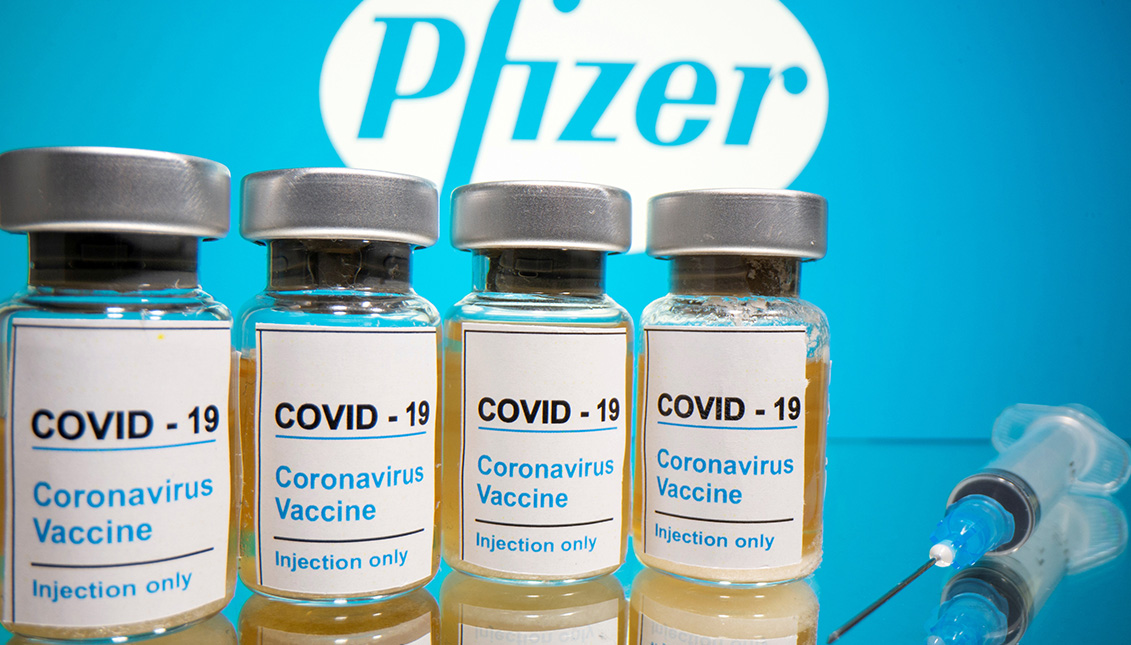
Pfizer's vaccine brings an onslaught of dubious political promises
The U.S. biopharmaceutical company revealed promising, not definitive results on a coronavirus vaccine, and a wave of promises spread in Spain, Mexico, Ecuador…
It is extremely difficult to discern whether the enthusiasm for the coronavirus vaccine announced two days ago by the U.S. pharma giant, Pfizer, is due to the desperation caused by the pandemic, the need for legitimacy from world governments, the incipient tactics of 21st-century molecule trading, or a stock market move by its CEO. Be that as it may, despite the barrage of naive headlines, nothing is really clear yet about the COVID-19 vaccine.
Journalists love a good headline, and the announcement by companies Pfizer and BioNTech about the 90% effectiveness of their Phase 3 vaccine tested on 43,500 people without adverse effects fused with post-election nerves, went straight to the top of many newsrooms without criticism.
Initial caution is necessary because it is an interim result. That is, the 90% is an evaluation of the team before the end of the study, especially given the time when the news was released: just after the projected loss of U.S. President Donald Trump. It also happened just before the results of competing companies racing for a vaccine, nine of which are also in phase three trials.
So, in the midst of such a convenient wave for the giant biopharmaceutical company, the fact that Pfizer's CEO sold 62% of its shares for $5.6 million on the day of the vaccine announcement adds to our healthy cynicism. Albert Bourla sold 132,508 shares at a price of $41.94. The commercial operation itself is not surprising, but it did not wait a few months for the confirmation of the definitive result, or that of other companies such as Sinovac, Johnson & Johnson, and Oxford/AstraZeneca.
To begin with, the trial of the "BNT162b2" vaccine has not yet completed phase three, much less been subjected to the obligatory evaluation by institutions such as the European Medicines Agency. Secondly, it will be necessary to see how its 10% inefficiency will be explained when talking about billions of people susceptible to the coronavirus disease. And thirdly but just as relevant as the previous points, is the achievement of the aforementioned 90% effectiveness by age groups — something that is not revealed in the interim result along with the specific epigenetics of large cultural groups since it is based on new technology.
RELATED CONTENT
But the difficulties do not end here. The gigantic logistical project of distributing a vaccine with similar tempos all over the world, to balance colossal differences in price and its distribution, was an unknown until now. It may also need to be transported at -80ºC, which requires the use of liquid nitrogen or another type of ultra-freezer.
The technical difficulties of a project of this type will only increase uncertainty regarding who will receive it first. Countries such as Spain, Mexico, Ecuador and Peru have announced their agreements with Pfizer and other pharmaceutical companies, but without clarifying the budgets for such massive operations, which will have to be repeated every year as with the flu vaccine.
The government of Spain already announced to its citizens that the vaccine could be ready by January 2021, thus provoking the beginning of the odious comparisons with other countries. But such an announcement cannot but be interpreted within the communication channels of a government deeply punished by public opinion due to chaos on the homefront.
Again, the question of who will receive the vaccine is a major policy issue. It is not just geopolitical tensions or age group voting patterns that generate predictions by the ruling parties, Joe Biden's promises of pandemic policy change, or stock market interests. It is also because the 21st century is gradually revealing itself as a conflict over the politics of trade in molecules in which we are involved.










LEAVE A COMMENT: